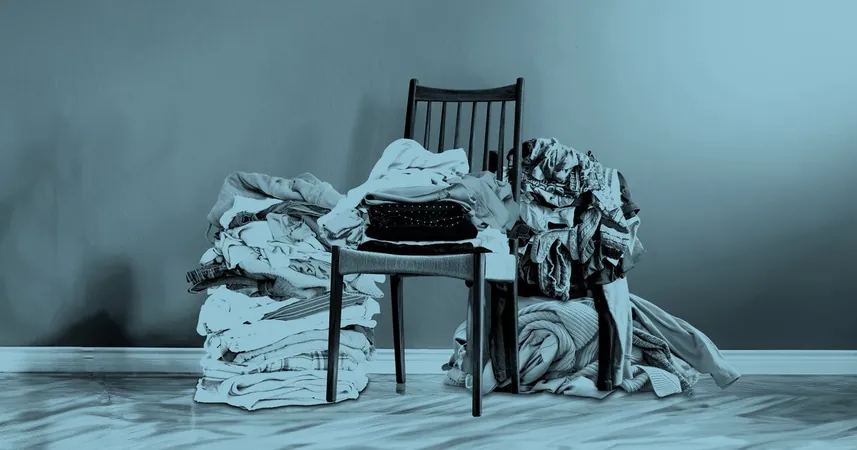
Unveiling the Concept of 'Depression Rooms': What They Are and Why They Matter
2025-08-24
Author: Wai
Understanding Depression Rooms
Depression is often more than just an emotional struggle; it takes a toll on both mental and physical well-being, resulting in feelings of isolation, fatigue, and despair. One aspect that tends to be overlooked is how depression affects our living spaces, particularly our homes and bedrooms. Recently, social media platforms like Instagram and TikTok have ignited discussions about this phenomenon as users share videos of their so-called "depression rooms."
What's a 'Depression Room'?
So, what exactly is a 'depression room'? According to experts, the term has emerged in popular psychology to describe a person's living area during a depressive episode. These spaces often become cluttered and chaotic, reflecting the individual's mental state. Dayton Olsen, a licensed professional counselor, explains that a depression room signifies a space that has fallen into disarray because the person inhabiting it feels overwhelmed by their emotional struggles.
Kobe Campbell, a clinical mental health counselor, emphasizes that the state of these rooms is not a result of laziness or negligence, but rather a manifestation of internal turmoil. "The situation at home mirrors what's happening inside," he points out.
The Link Between Environment and Mental Health
The impact of mental health on physical space is crucial. When someone is in the grips of depression, everyday tasks can feel insurmountable. Campbell notes that this condition can obstruct executive function, the cognitive processes that allow us to plan and execute daily responsibilities. As a result, mundane activities like doing laundry or washing dishes can become monumental challenges.
Breaking the Cycle of Negativity
Cleaning a depression room can serve as a vital step in breaking the cycle of despair. Taisha Caldwell-Harvey, a psychologist, underscores the importance of behavior in shifting our mental state. When you start to clean, no matter how small the effort—like tidying up one corner—you signal to your brain that you're capable of taking action, which can foster hope.
The Impact of Your Surroundings
Moreover, your living environment can serve as a barometer for your emotional health. Research shows that individuals who view their living spaces as cluttered tend to experience higher levels of stress and fatigue. Small acts of tidying up have been known to generate feelings of safety and comfort, potentially easing emotional distress.
Finding Support and Understanding
If you find yourself in a depression room, know that you're not alone. Campbell reassures us that having a messy space during low periods is completely normal and not a reflection of your worth. It's vital to remember that clutter can be a signpost indicating a need for more support.
Seek Help When Needed
While videos about cleaning depression rooms can promote a sense of community and connection, it's crucial to distinguish between situational depression and clinical depression. Not everyone with a cluttered room is experiencing clinical depression, but for those who are, it’s essential to seek professional help. Therapy and medication are proven effective options.
Embrace Small Steps Towards Healing
Healing isn't about making dramatic changes overnight; it's about consistent, small acts of kindness toward yourself. Cleaning your room or creating small structure in your daily life can be powerful initial steps in reclaiming your mental space. Remember, your environment can reflect your emotional landscape, so be gentle with yourself during this journey.




 Brasil (PT)
Brasil (PT)
 Canada (EN)
Canada (EN)
 Chile (ES)
Chile (ES)
 Česko (CS)
Česko (CS)
 대한민국 (KO)
대한민국 (KO)
 España (ES)
España (ES)
 France (FR)
France (FR)
 Hong Kong (EN)
Hong Kong (EN)
 Italia (IT)
Italia (IT)
 日本 (JA)
日本 (JA)
 Magyarország (HU)
Magyarország (HU)
 Norge (NO)
Norge (NO)
 Polska (PL)
Polska (PL)
 Schweiz (DE)
Schweiz (DE)
 Singapore (EN)
Singapore (EN)
 Sverige (SV)
Sverige (SV)
 Suomi (FI)
Suomi (FI)
 Türkiye (TR)
Türkiye (TR)
 الإمارات العربية المتحدة (AR)
الإمارات العربية المتحدة (AR)